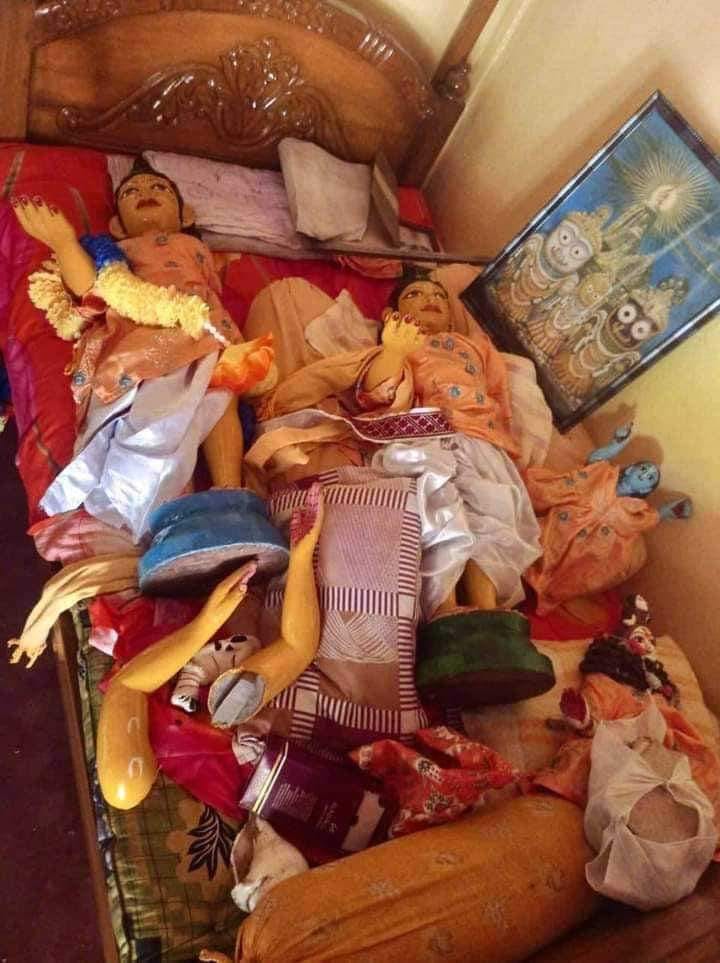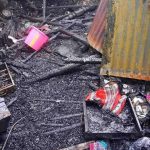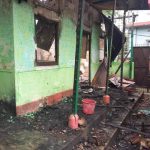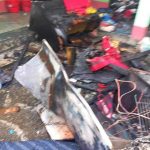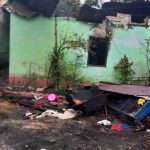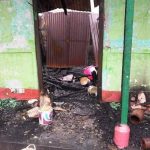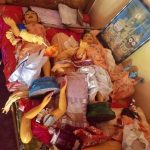The attack in Sylhet demands immediate attention. It calls for accountability, protection for minority communities, and urgent action from both the government and international organizations. The victims deserve justice, reparations, and the security to rebuild their lives in a society free from violence and hate. It is crucial that we stand in solidarity with those affected, ensuring their voices are heard and their pain is not forgotten.
The Attack: A Night of Destruction
In the dead of night, a group of assailants descended upon several neighborhoods in Sylhet that are predominantly home to Hindu, Christian, and indigenous communities. They set fire to houses, looted shops, and desecrated places of worship, leaving behind only the wreckage of what once were peaceful homes and businesses.
The damage was widespread: homes were ransacked, valuables were stolen, and religious idols were broken and defiled. Shops and small businesses, many of which served as the lifeblood of the local economy, were destroyed. The attackers targeted everything from private properties to community halls, leaving families devastated and fearful for their lives.
The violence didn’t end with material destruction; the emotional toll on the victims has been even more severe. In a climate of fear and intimidation, many members of the community are reluctant to speak out, worried about retaliation or further violence. For them, the attack wasn’t just about lost possessions—it was about their sense of safety and belonging being torn apart.
A History of Vulnerability
Sylhet, like many other regions of Bangladesh, has witnessed rising tensions between majority and minority communities in recent years. Religious intolerance and ethnic discrimination have fueled a climate of fear for Hindus, Christians, indigenous peoples, and other minorities, who have long lived in the region. While many families have tried to maintain a peaceful existence, recent attacks like the one on August 10th are a stark reminder of the precariousness of their position.
Over the years, minority communities in Bangladesh have faced increasing violence, from land grabs and discrimination to attacks on religious practices. Unfortunately, these attacks are often met with inadequate responses from the authorities, leaving the victims without justice and further exposing them to ongoing threats.
The Impact: Lives and Livelihoods Shattered
The damage caused by the vandalism is not just physical—it is deeply psychological as well. For many of the victims, the destruction of their homes and businesses represents the loss of everything they have worked for. Families have been forced into displacement, leaving behind their familiar surroundings, their livelihoods, and, for many, the very sense of belonging that once gave them hope.
In addition to the destruction of property, many families have faced threats and harassment. Some have been forced to leave the area entirely, while others live in constant fear of further violence. The psychological scars left by such attacks can last for years, as communities struggle to rebuild their lives while still living under the shadow of fear and uncertainty.
The Silence of the Authorities and Media
As with many attacks against minority communities in Bangladesh, the response from the authorities has been slow and insufficient. While some local officials have promised investigations and protection for the victims, the lack of real action and accountability raises serious concerns. There is little confidence among the affected families that those responsible for the vandalism will face any legal consequences.
Moreover, media coverage of the attack has been sparse, with much of the reporting coming from local activists and human rights organizations. In a country where press freedom is increasingly restricted, and where minority issues are often sidelined in favor of political agendas, the silence from mainstream media outlets is deeply troubling. Without the pressure of public attention, such attacks risk fading into obscurity, leaving the victims to suffer in silence.
A Call for Justice and Protection
The recent attack in Sylhet is a tragic reminder of the ongoing dangers faced by minority communities in Bangladesh. This act of violence was not just an assault on property—it was an assault on the dignity and rights of an entire community. The victims of this attack, and others like them, deserve justice, protection, and the opportunity to live without fear of violence and persecution.
It is essential that the Bangladeshi government, local authorities, and international human rights organizations step in to ensure that:
- Accountability is upheld: Those responsible for the vandalism and destruction must be brought to justice, and the community must receive compensation for their losses.
- Security and protection are guaranteed: Minority communities need stronger protections from violence, intimidation, and harassment. Law enforcement must take a more proactive role in ensuring their safety.
- Freedom of expression and press is safeguarded: The media must be allowed to report freely on incidents like these, bringing attention to the plight of minorities and holding authorities accountable.
- Reparations and aid: Victims of such violence should receive financial assistance, mental health support, and the resources necessary to rebuild their lives and restore their communities.
